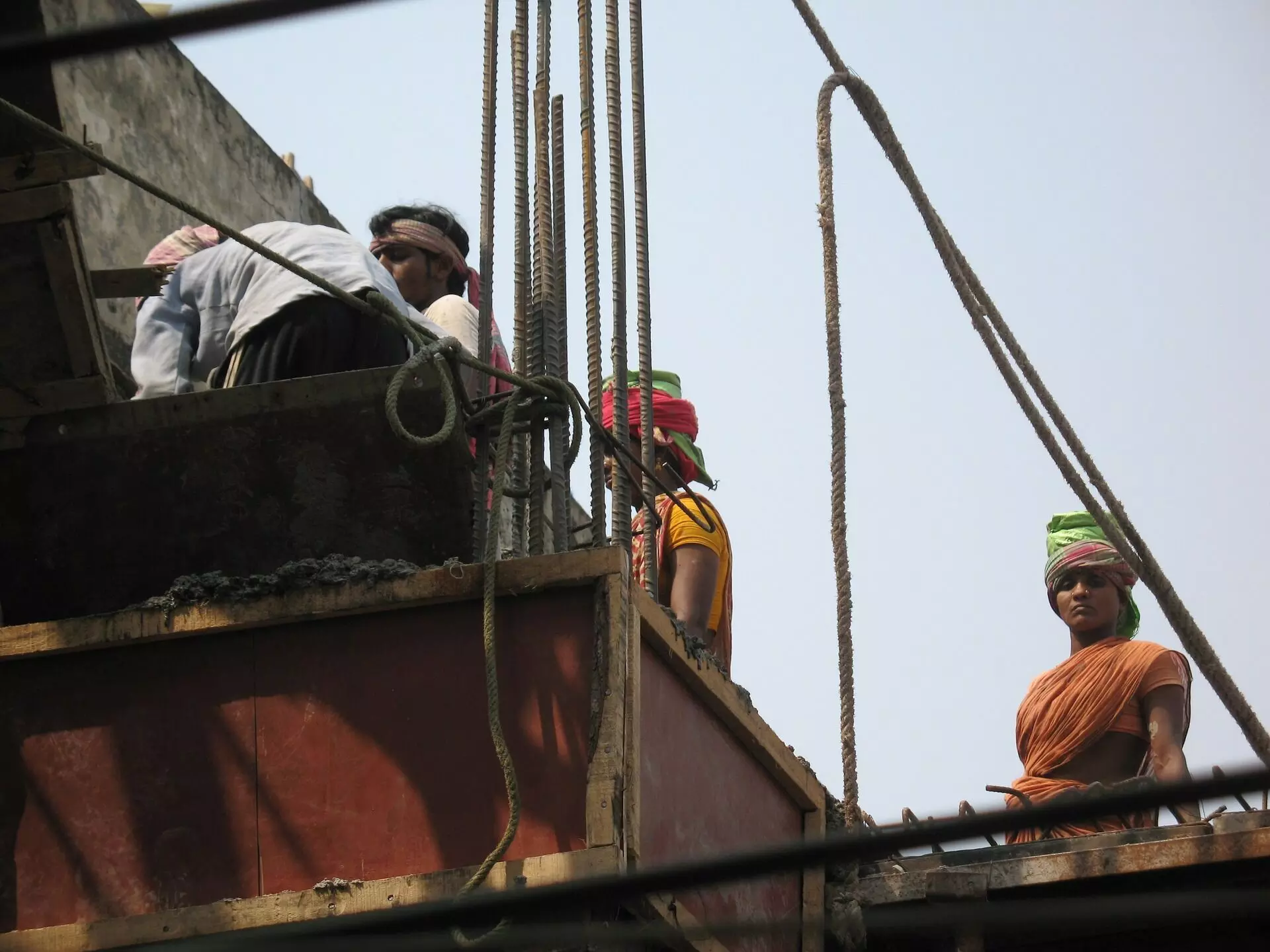Fixing legal loopholes
The glaring gaps in the living and working conditions of construction workers vis-à-vis other professionals need to be plugged urgently through statutory changes

Poverty status of our country may be argued over, but the age-old laws for construction workers are undeniably not catering enough. Look at the steep difference, babus in certain sectors work for a few hours with several holidays, and are highly paid. But poor construction workers need to slog under the high and mighty supervisors. Tons of hard work daily for a few hundred!
Not only is the pay poor, the condition of construction sites for the innocent, neglected kids and destitute women is well known. Millions are engaged in this most vulnerable segment of unorganised labour.
There is an urgent need for provisions for higher pay-outs. There ought to be well-defined pay structures for the most toiled works than just the minimum wage rates.
Building and Other Construction Workers (Regulation of Employment and Conditions of Service) Act, 1996 (BOCW) has been promulgated for the benefit of construction workers. However, ambiguity in provisions has led to several anomalies in true implementation. To achieve harmony in the economy, genuine implementation of the legislation is needed in every state. The most effective way to ensure that the provisions are complied with is to utilise technology in every nook and corner of the country, inter alia directing companies to list compliances on their websites. Each and every construction worker’s account should be highlighted on the website. Same goes for compliances towards social security benefits, crèches, drinking water, first aid, accommodation and safety by the employers etc. It should be ensured that salary transfer is made only through a bank account, and not cash payment via any middle men. All this can be included in the statute itself.
Apart from labour officers, there should be dedicated officers’ zone-wise team, reporting directly to the ministry on a daily basis. This team ought to constantly supervise online compliances as well as make physical verifications. Most imperatively, strict and fast disciplinary action should be taken against officials whose lethargy leads to oodles of non-compliances.
The most predominant provision is the deposition of cess under the BOCW Cess Act, 1996, which is a sister Act of BOCW Act. Clarity about cess under BOCW Act itself would go a long way in speeding up unnecessary litigations, thereby benefiting workers and curbing financial burden on companies. There is an urgent need to bring clarity on components to be included for cess, so that inspector raj stops harassing the companies with colossal liabilities. While it is important to collect a substantial amount for the welfare of workers, it is equally important to acknowledge the financial burden caused on corporates.
As a common practice, parties involved in the construction sector shift the burden on each other for collection of cesses. For years, companies spend on litigation, merely deciding who is responsible, since there are a number of parties involved in the construction business, such as the owner of the premises, vendor and sub-vendor(s). Though in the last decade, a catena of judgments clarified that the authorities can impose penal consequences for non-compliance on any party, years are spent in high-end litigations, thereby making workers and companies both suffer. Such grey areas need to be clarified in the statute itself. Apart from this, agreements among the principal employer, contractor and sub-contractors also need to be clearly drafted. It should be patently articulated as to who would be responsible for registration, cess and other compliances.
Furthermore, according to the Cess Act, the amount goes to welfare boards, created to utilise funds for benefits such as pensions, loans, insurance, medicine, education, etc. Immediate steps need to be taken to ensure that the reserves are utilised appropriately. Another imperative is rejuvenations like LTA i.e., leave travel allowance. After all, each has a Constitutional right to travel, apart from living a good life with liberty. The Cess Act may be utilised to cater to this aspect too.
It is high time that laws are promulgated, catering to basic needs of all, apart from inculcating faster disciplinary actions on deadwood lethargic officials.
The writer is a practising Advocate in Supreme Court and High Court of Delhi. Views expressed are personal



